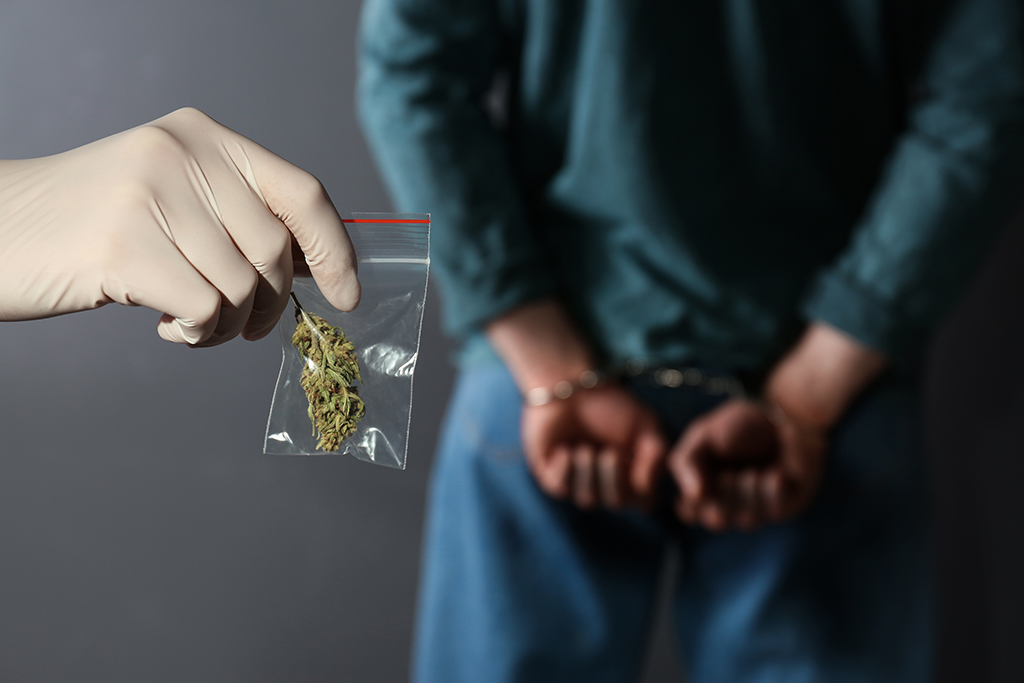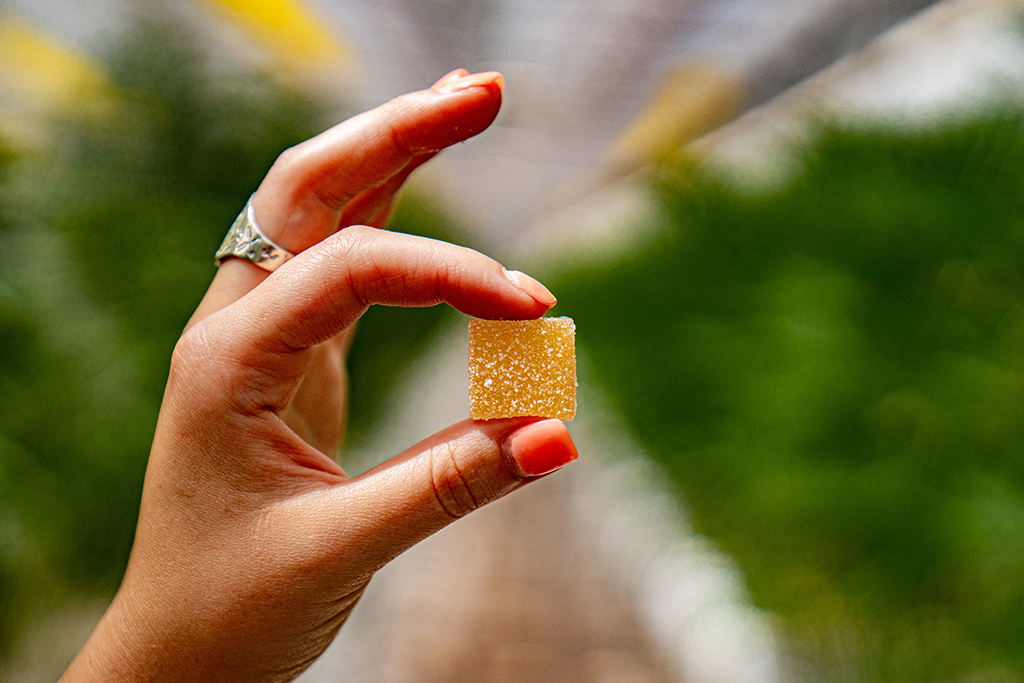Reviewed By:
As marijuana becomes legal across more states, use during pregnancy has been quietly on the rise. Here's what we know about the health risks.
Table Of Contents
According to the National Survey on Drug Use and Health, marijuana use among expectant mothers doubled between 2002 and 2017 to an estimated 7% overall. As many as 12% of mothers said they’ve used marijuana during their first trimester. The American College of Obstetrics and Gynecology (ACOG) further reveals that marijuana is the most-used illicit drug during pregnancy. Whether you’ve considered smoking weed while pregnant or using edibles, here’s what to know.
Why Moms Are Using Marijuana
Why would an expecting mother turn to marijuana? The reasons are complicated.
A Washington State University survey suggests that most women use marijuana to manage wide-ranging health conditions, from chronic illnesses to nausea. Some also said they use it to manage stress. Many voiced concern about the potential of being prescribed what they viewed as more harmful drugs instead, such as opioids, anti-nausea drugs, or anti-psychotic medications. Unfortunately, many said they were uncomfortable asking their doctors for information.
“Many of the moms we spoke to reported feeling incredibly stigmatized as soon as they reported that they were using marijuana,” said Celestina Barbosa-Leiker, vice chancellor for research at WSU Health Sciences Spokane and lead author of the study.
Women are particularly unlikely to address marijuana use if they use it for nonphysical health issues, such as the stress of becoming a new mom. The lack of communication with their doctors has led to an alarming opening for dispensaries to fill the void. As Vox recently reported, cannabis brands have begun targeting pregnant women, marketing their products as a cure for morning sickness. Without conversations taking place with their Ob/Gyns, many women aren’t getting all the facts.
Smoking Weed While Pregnant: What the Experts Say
ACOG officially recommends that women avoid marijuana in any form while pregnant or breastfeeding. Most doctors take this stance. Some experts, like Barbosa-Leiker, advocate a “harm reduction” approach, encouraging doctors to consider each case individually.
“The worst thing that could happen is that a mom feels so uncomfortable that she doesn’t come back for prenatal care, which is detrimental to the health of the baby,” she told Science Daily.
Some women feel more comfortable asking advice from their doulas, but birth specialists remind mothers that only doctors should answer questions about drug use.
“It’s in the realm of giving medical advice, which a doula should never do,” said Ann Fulcher, Program Manager of the Hearts & Hands Volunteer Doula Program and the University of California, San Diego. “Especially since underlying conditions could play a factor, I will suggest any pregnant person consult their midwife or doctor for personalized and up-to-date information.”
Accessing the most up-to-date information has indeed become increasingly important. With use on the rise, researchers are incentivized to find answers. For example, just weeks after the original publish date of this article, a study published in JAMA Psychology found an association between prenatal cannabis exposure and adverse outcomes for children, including psychotic-like behaviors. This study provided clarity to some of the questions below, and of course, posed new questions as well. We’ll look more at this in the next section.
What the Science Says
Unfortunately, studies related to marijuana are often incomplete — and some even contradict each other. Notably, most studies don’t account for the higher levels of THC found in modern cannabis products compared to those of the past. Existing studies also only reflect the impact of smoking weed while pregnant, making it difficult to assess the impact of edibles and tinctures. In a pair of studies reported by Medscape, one found a risk of preterm birth and poor neonatal outcomes, while the other reported a slight, but scientifically significant reduction in the risk of preeclampsia and diabetes. Researchers were quick to emphasize that taken together, the studies suggest that expectant mothers should avoid cannabis.
“These two studies send a straightforward message: cannabis use in pregnancy is likely unsafe,” wrote Michael Silverstein, MD, MPH, of Boston University School of Medicine in an editorial about the research, as reported by Medscape.
The September 2020 study published in JAMA paints a more detailed picture of the risks to developing babies, suggesting that children whose mothers used marijuana during pregnancy were at greater risk of having attention, social and cognitive problems, including a lower volume of gray matter.
The science on marijuana and breastfeeding is also still developing. Researchers have confirmed that THC can be stored in the fat, making it available to infants through breast milk. However, the effect on child development was inconclusive.
Doctors are quick to point out the absence of data should encourage women to be cautious, not cavalier.
“There is this unfortunate public perception that marijuana is safe, when truly what we have is a lack of data,” Dr. Albert Hsu, a fertility specialist at MU Health Care in Missouri, told Stat News. “And a lack of data doesn’t mean something is safe — it means there is a lack of data.”
A Closer Look at the Risks
From preterm birth to a greater chance of stillbirth, here’s a closer look at the risks that make experts wary:
Preterm Birth
Recent studies (conducted separately by OSU and a team in Ottawa) link marijuana to an increased risk of preterm birth, a scenario that can lead to a variety of complications, such as low birth weight. It could potentially be fatal for the baby. Plus, preterm birth is connected to chronic health issues, learning impairments, and psychological problems.
Risk of Stillbirth
A detailed study published in the American Journal of Obstetrics and Gynecology found a correlation between prenatal marijuana use and a greater risk of stillbirth.
Cognitive Impairment
One thing we know for certain is that THC – the ingredient in marijuana that produces the high – crosses the placenta, meaning it reaches a baby’s brain. One peer-reviewed study published in May suggests that exposure to cannabis in the womb does not lead to cognitive impairment, but another suggests that it does. The inconclusive data suggests risk.
Symptoms of Psychopathology
The recent research by Washington University in St. Louis has added symptoms of psychopathology to the list of possible adverse outcomes. These include psychotic-like experiences (PLEs), problems internalizing and externalizing, attention issues, and poor cognition.
It’s also important to point out that smoking weed while pregnant can put the mother at risk of certain conditions as well. Some research indicates higher occurrences of breathing problems and psychosis, for example. Moreover, marijuana is still a federally illicit substance. If a mother becomes incarcerated or involved in legal trouble, this can affect the pregnancy and the baby. Statistics show that even though society has become more accepting of recreational and medicinal weed, marijuana-related arrests are still rising.
What Are Alternative Treatments for Stress and Nausea?
If you or someone you know is struggling with stress or nausea, there are alternatives to marijuana. Ideally, you want to speak with your physician to determine which options may be right for you, particularly if you are pregnant. Depending on your unique situation, your doctor may recommend:
- Aromatherapy
- Ginger
- B-6 Supplements
- OTC Nausea Medication
- Dietary Changes
- Acupressure or Acupuncture
- Breathing Exercises
- Meditation
- Prenatal Yoga
At times, your doctor may also recommend prescription medications. If this occurs, it usually means your physician feels the benefits outweigh the potential risks. If you have concerns, don’t be afraid to speak up. One of the biggest hurdles doctors now face is that women are afraid to share their history of use. Put those fears aside and ask the questions that get you answers.
It is also important to recognize the real mental health impact of becoming a new parent, and finding healthy ways to manage that stress. There are a number of free online support groups, forums, helplines and community resources specifically created with new moms in mind. Check out our Postpartum Mental Health Guide for a list of resources.
The Bottom Line
Health professionals overwhelmingly agree with the ACOG guidelines: avoid using marijuana in any form during pregnancy and while breastfeeding. If you fear certain prescription drugs might harm your baby, ask for alternatives. Only by working with your doctor can you appropriately assess the risks involved and find a solution that leaves you both feeling comfortable.
A Note About Marijuana Addiction
One final important factor for anyone who uses marijuana is the potential for addiction. If you experience any of the following, you may be addicted:
- Cravings for marijuana
- Inability to relax without it
- Using marijuana to escape problems
- Use of marijuana despite negative consequences
- Turning to marijuana before considering other remedies for health problems
- A need for increasingly higher doses to achieve the desired effect
- Inability to cut back on your own
If you have developed a dependence on marijuana, treatment can help. With the support of medical and mental health professionals, you can do more than address physical addiction. You also get support for co-occurring health issues, stress and other factors that affect your overall well-being. Reach out to learn about flexible treatment options to become your healthiest self for you and your baby.
Updated with new research on September 29, 2020.
Have questions about addiction?Chat with one of our recovery specialists now.


